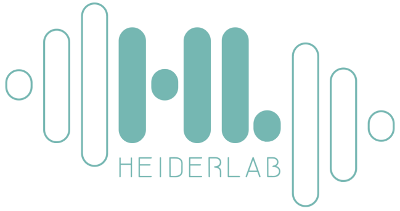CORona Drug InTEractions database
Drugs Repurposing Using QSAR, Docking and Molecular Dynamics for Possible Inhibitors of the SARS-CoV-2 Mpro Protease
Eduardo Tejera, Cristian R. Munteanu, Andrés López-Cortés, Alejandro Cabrera-Andrade, Yunierkis Pérez-Castillo
Abstract
Wuhan, China was the epicenter of the first zoonotic transmission of the severe acute respiratory syndrome coronavirus clade 2 (SARS-CoV-2) in December 2019 and it is the causative agent of the novel human coronavirus disease 2019 (COVID-19). Almost from the beginning of the COVID-19 outbreak several attempts were made to predict possible drugs capable of inhibiting the virus replication. In the present work a drug repurposing study is performed to identify potential SARS-CoV-2 protease inhibitors. We created a Quantitative Structure–Activity Relationship (QSAR) model based on a machine learning strategy using hundreds of inhibitor molecules of the main protease (Mpro) of the SARS-CoV coronavirus. The QSAR model was used for virtual screening of a large list of drugs from the DrugBank database. The best 20 candidates were then evaluated in-silico against the Mpro of SARS-CoV-2 by using docking and molecular dynamics analyses. Docking was done by using the Gold software, and the free energies of binding were predicted with the MM-PBSA method as implemented in AMBER. Our results indicate that levothyroxine, amobarbital and ABP-700 are the best potential inhibitors of the SARS-CoV-2 virus through their binding to the Mpro enzyme. Five other compounds showed also a negative but small free energy of binding: nikethamide, nifurtimox, rebimastat, apomine and rebastinib.
Source: PubMed
Related molecules
Related interactions
| Target | Target affiliation | Drug | Type | Result |
|---|---|---|---|---|
| Target | Target affiliation | Drug | Type | Result |
| Name | Synonyms | Genes | Origin |
|---|---|---|---|
| Name | Synonyms | Genes | Origin |
| Name | Synonyms | PubChem | DrugBank | RCSB PDB | ATC |
|---|---|---|---|---|---|
| Name | Synonyms | PubChem | DrugBank | RCSB PDB | ATC |
| Title | Authors | DOI | Source | Article type | Date |
|---|---|---|---|---|---|
| Title | Authors | DOI | Source | Article type | Date |
| Title | Status | Phases | Start Date | Prim. Comp. Date | Comp. Date | First Post. Date |
|---|---|---|---|---|---|---|
| Title | Status | Phases | Start Date | Prim. Comp. Date | Comp. Date | First Post. Date |
CORDITE (CORona Drug InTEractions database) collects and aggregates data from PubMed, MedRxiv, BioRxiv, ChemRxiv and PMC for SARS-CoV-2. Its main focus is set on drug interactions either addressing viral proteins or human proteins that could be used to treat COVID. It collects and provides up-to-date information on computational predictions, in vitro, as well as in vivo study data.
The information provided is for research only and we cannot guarantee the correctness of the data.
Please contact dominik.heider@uni-muenster.de for further information.
Programmable access
There is an open API for access programmatically to the database. The API will print a JSON output:
- Interactions
https://cordite-api.uni-muenster.de/api.php?action=list&table=interaction
- Targets
https://cordite-api.uni-muenster.de/api.php?action=list&table=target
- Drugs
https://cordite-api.uni-muenster.de/api.php?action=list&table=drug
- Publications
https://cordite-api.uni-muenster.de/api.php?action=list&table=publication
- Clinical trials
https://cordite-api.uni-muenster.de/api.php?action=list&table=clinical_trial

